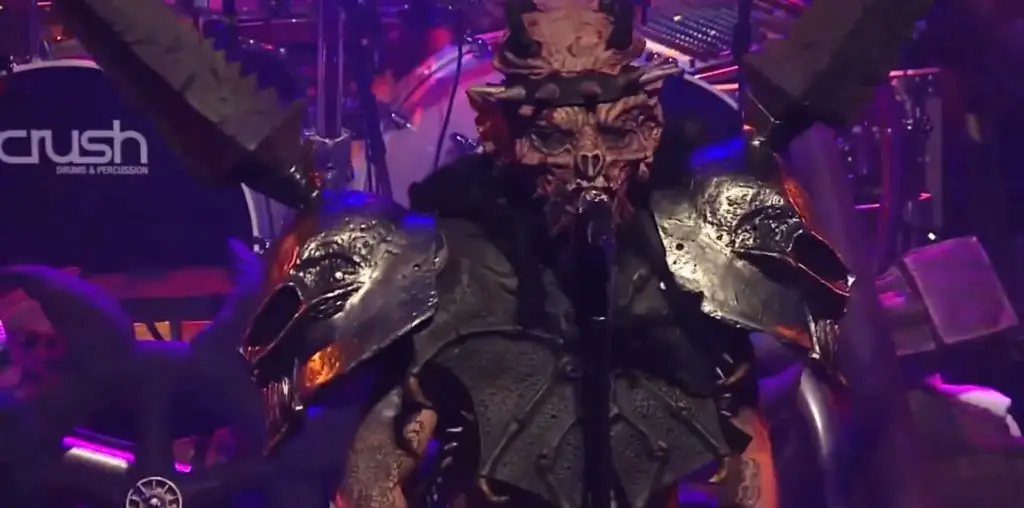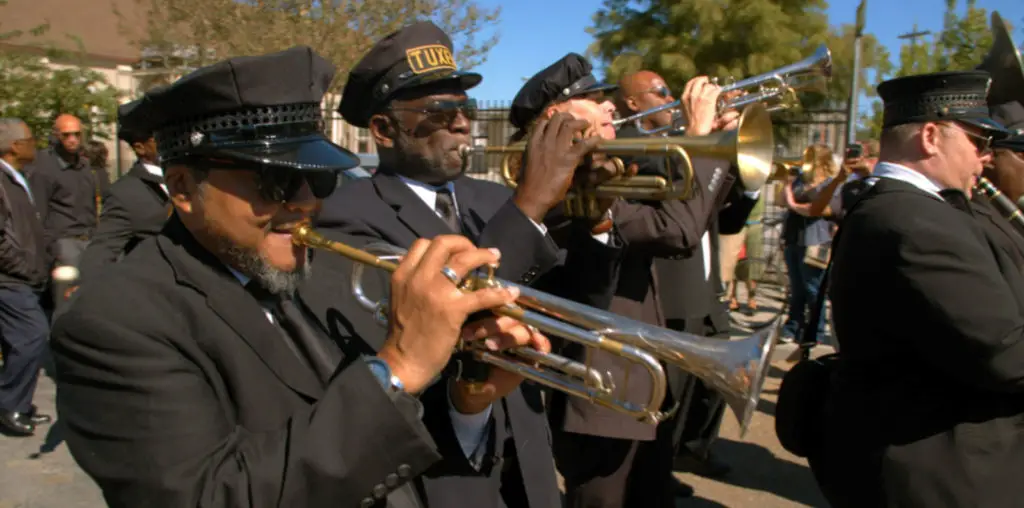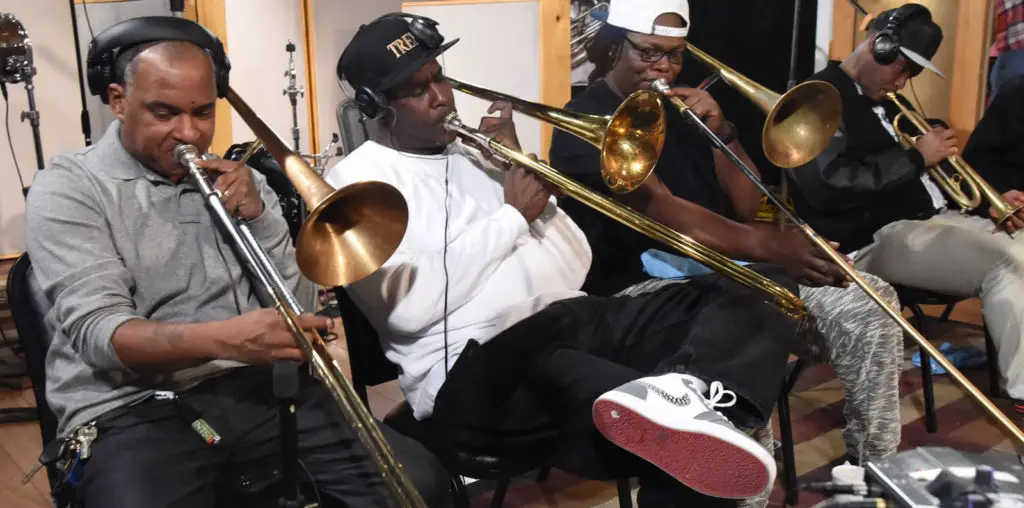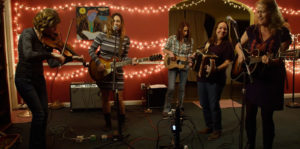
Get ready to feel the blood rush into your perception of existence in directors Abby Berendt Lavoi and Jeremey Lavoi’s profound cajun music documentary Roots of Fire. Prepare to be immersed in the wild gumbo of the live scene in Lafayette, Louisiana, that strives to keep the locals’ French traditions alive. The singing is in French with rambunctious doses of accordion and fiddle. The bands that play this style stress their devotion to the old music isn’t a museum exhibit but an extension of a still living culture.
The origins of cajun culture are explored with some animated sequences, starting in the 18th-century French settlements up by the Gulf of Maine in Nova Scotia and New Brunswick. These settlers, known as the Acadians, were expelled from the Northeast due to not fighting alongside the French in a particular conflict. Rejected by most ports of entry, the Acadians eventually found refuge in Louisiana. There the word “Acadian” was filed down over use into the term “Cajun.” Despite attempts to erase the Cajun way of life with “Speak English or Die” public education programs, its traditional music survived. With roots stretching decades, young people in the 1990s started getting interested in this music, usually enjoyed by elder people in now closed dance halls. The musicians who currently play follow the traditions but add new embellishments and modern innovations.
Right from the incredible opening shots by the Lavois, who, besides cinematography, did the editing, producing, and writing, Roots of Fire establishes a high mark of production value. The audience is in for a hurricane of fun. The music produces an unquenchable joy that is genuine and undeniable. As someone who grew up in Acadia, I was thunderstruck by the ties to Cajun culture. It is heartwarming to see more evidence besides The Trailer Park Boys as to why the Atlantic maritime parties are so f*****g hard.
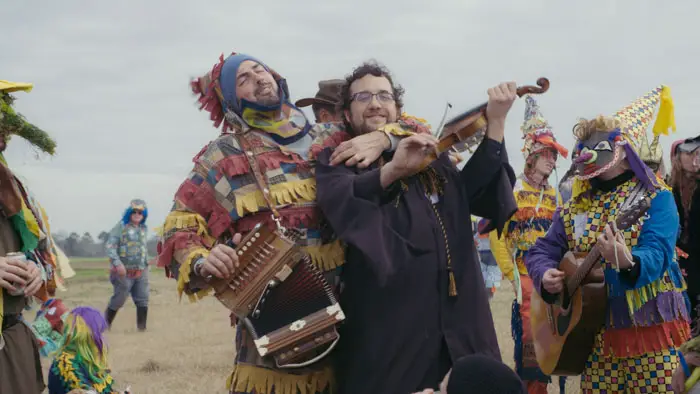
“…strives to keep the locals’ French traditions alive. The singing is in French with rambunctious doses of accordion and fiddle.”
Discovering that Lafeyette is a mecca for this music was eye-opening, with the point driven home by the Grammy pot-luck held for three of the five nominees that year for roots music. The viewer doesn’t need any previous exposure to Cajun music to enjoy the s**t out of the music or this film. The French lyrics are a big plus, as you cannot have any residual corniness of yesteryear poison the organic boogie of the tunes. Unless you speak French, of course. But, it is impossible not to start dancing, either on your feet or in your lungs.
Roots of Fire reminds me of Les Blank’s legendary documentaries on music and food, particularly his polka film In Heaven There Is No Beer. Like Blank, the Lavois explore their subject with such passion it transcends the bounds of the specifics. The insights into life and existence are surprising and intense. I felt like I was in a starship traveling way higher than the usual cut to concert cut to interview music doc.
The centerpiece of the musician’s community, Mardi Gras is a great example, as it takes things straight to Fellini Town. See the struggle of civilized behavior personified by several figures in wild costumes climbing a pole to get a chicken. There were several crowd spectacles in these scenes with whips and liquor that summoned the energy of the party in Pink Flamingos except with pants on. Roots of Fire has the power to make you a fan of Cajun music for life, while also (maybe) making you more of a fan of life itself.
For screening information, visit the Roots of Fire official website.
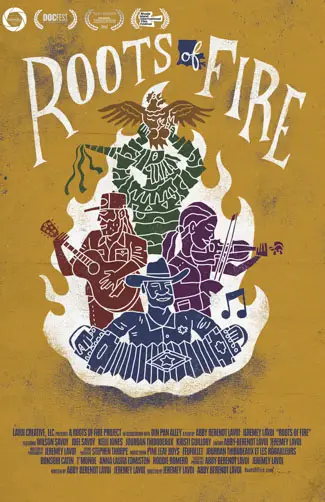
"…has the power to make you a fan of Cajun music for life..."
